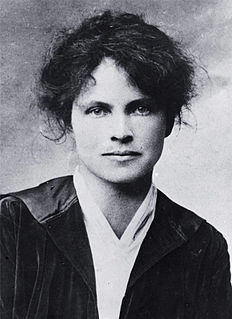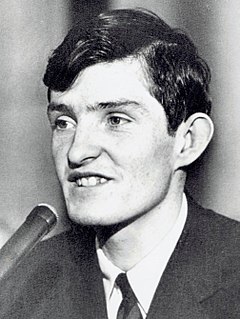A Quote by Albert Schweitzer
To affirm life is to deepen, to make more inward, and to exalt the will-to-life. At the same time the man who has become a thinking being feels a compulsion to give every will-to-live the same reverence for life that he gives to his own. He experiences that other life as his own. He accepts as being good: to preserve life, to raise to its highest value life which is capable of development; and as being evil: to destroy life, to injure life, to repress life which is capable of development. This is the absolute, fundamental principle of the moral, and it is a necessity of thought.
Quote Topics
Absolute
Affirm
Become
Being
Capable
Compulsion
Deepen
Destroy
Development
Every
Evil
Experiences
Feels
Fundamental
Give
Gives
Good
He Man
Highest
His
Inward
Life
Life Is
Live
Make
Man
Moral
More
Necessity
Other
Own
Preserve
Principle
Raise
Reverence
Reverence For Life
Same
Same Time
Thinking
Thought
Time
Value
Which
Will
Related Quotes
Once a man recognizes himself as a being surrounded by other beings in this world and begins to respect his life and take it to the highest value, he becomes a thinking being. Then he values other lives and experiences them as part of his own life. With that, his goal is to help everyone take their life to the highest value; anything which limits or destroys a life is evil. That is morality. That is how men are related to the world around them.
The elemental fact, present in our consciousness every moment of our existence, is: I am life that wills to live, in the midst of life that wills to live.... The essence of the humane spirit is: Preserve life, promote life, help life to achieve its highest destiny. The essence of Evil is: Destroy life, harm life, hamper the development of life
Reverence for Life affords me my fundamental principle of morality, namely, that good consists in maintaining, assisting, and enhancing life and that to destroy, harm, or to hinder life is evil. Affirmation of the world - that is affirmation of the will to live, which appears in phenomenal forms all around me - is only possible for me in that I give myself out for other life.
Life is an opportunity, benefit from it. Life is beauty, admire it. Life is a dream, realize it. Life is a challenge, meet it. Life is a duty, complete it. Life is a game, play it. Life is a promise, fulfill it. Life is sorrow, overcome it. Life is a song, sing it. Life is a struggle, accept it. Life is a tragedy, confront it. Life is an adventure, dare it. Life is luck, make it. Life is too precious, do not destroy it. Life is life, fight for it.
The life of any one can by no means be changed after death; an evil life can in no wise be converted into a good life, or an infernal into an angelic life: because every spirit, from head to foot, is of the character of his love, and therefore, of his life; and to convert this life into its opposite, would be to destroy the spirit utterly.
Men and women make their own beauty or their own ugliness. Sir Edward Bulwer Lytton speaks in one of his novels of a man "who was uglier than he had any business to be;" and, if we could but read it, every human being carries his life in his face, and is good-looking or the reverse as that life has been good or evil. On our features the fine chisels of thought and emotion are eternally at work.
Vermont tradition is based on the idea that group life should leave each person as free as possible to arrange his own life. This freedom is the only climate in which (we feel) a human being may create his own happiness. ... Character itself lies deep and secret below the surface, unknown and unknowable by others. It is the mysterious core of life, which every man or woman has to cope with alone, to live with, to conquer and put in order, or to be defeated by.
There is, however, a moral basis for the vegetarian diet for which the indeterminate value of an animal's life takes on irrelevance. And that moral basis is a concern for the environment, a value as absolute as the value we all place on human life, since humanity will not survive for long on a poisoned planet. To be an environmentalist who happens to eat meat is like being a philanthropist who doesn't happen to give to charity.

































